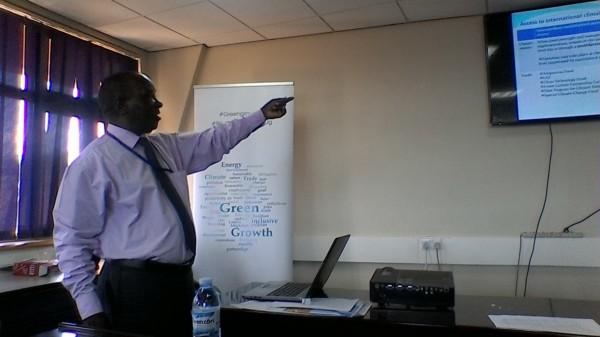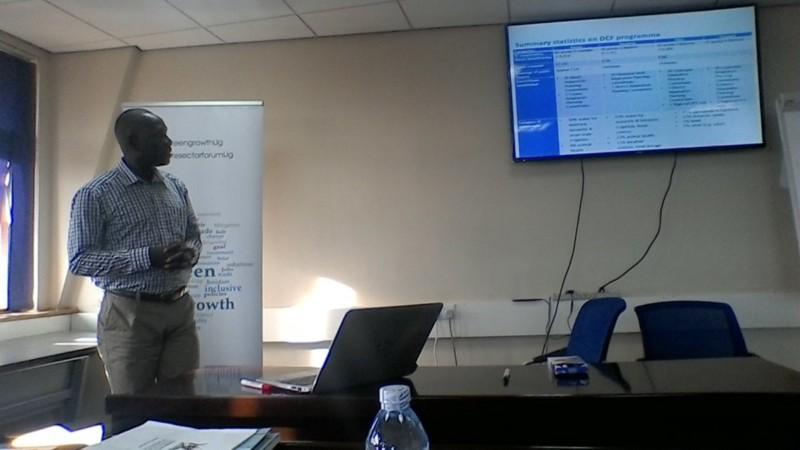How can Non-State Actors take part in Climate Finance Initiatives? - Foundation Office Uganda and South Sudan
Event Reports
The Climate Finance Workshop of the Private Sector Forum of 29th-30th November engaged on the subject of strengthening the capacity of Uganda’s non-state actors to trap into climate finance opportunities. When the Paris Agreement was signed, the developed countries agreed to provide financial resources to assist developing countries to implement their climate change goals. To achieve the climate goals, also the non-state actors as NGOs, the private sector or communities can contribute to climate-change-related-activities. Therefore, the workshop aimed to increase the understanding of non-state actors about climate financing and how it can be accessed.
Susan Nanduddu of ACTADE mentioned that developing countries are suffering of climate change mainly caused by developed countries. As impacts of climate change are already in Uganda, investments in adaption and mitigation are strongly needed. Nanduddu said: “Since 2011, 88 million US-Dollars have been approved by climate funds in Uganda which is 1.1% of the total climate funds. Most of it is going to adaption, 11% to mitigation.”
James Kaweesi of the Ministry of Water and Environment (MWE) explained that there are indirect and direct accesses to funds for Uganda, whereas direct access through the National Implementing Entity (NIE) is the preferred one because the NIE can take full ownership of their national projects. Indirect funds would be through World Bank, UNDP etc. From his experiences, Kaweesi told that the accreditation processes to access finances can be very long and complex as there are a lot of checks and documents needed. Another problem according to Kaweesi is the lacking of capacity building on the accreditation processes for government but also for non-state actors.
Mohammed Semmambo explained the programs of the Nationally Determined Contributions (NDC) which elaborates on adaption and mitigation around various sectors, including forestry, wetlands, energy etc. “The private sector involvement is crucial and essential in climate change processes in resilience, adaption and mitigation”, he said to the participants of the workshop. Members of the Climate Action Network (CAN-U) and the Network for Civil Society Organization in Environment & Natural Resources sector (ENR-CSO) talked about the role of civil society in the implementation process of projects. It was said that there are opportunities for CS but there is often a lack of capacity to participate in climate finance initiatives.
Joseph Epitu, responsible for capacity building in the MWE, reflected on the delivery mechanism for climate finance. He referred to Kenya as an example, where there are climate adaption funds, adaption planning committees, climate information to stakeholders on resilience planning tools etc. There also needs to be investments in local institution and in up-stream capacity building. Epitu noted that civil society and the private sector have a lot of room on the local level to engage in climate finance and sharing information.
On the second day of the workshop, participants talked about key learnings of the first day and in which areas they need more learning. Although there are already a lot of capacities available, there are still gaps as there is not a lot of information sharing. So there needs to be more collaboration between the government and non-state actors. Capacity building is especially needed in project formulation, effective project implementation and climate finance transparency and accountability according to the participants. The workshop was closed with remarks from Donnas Ojok of KAS who emphasized the importance of synergizing as a group and not working as individuals.
written by Claudia Hell




